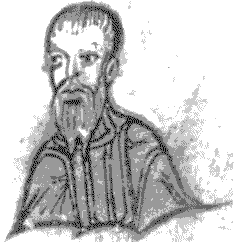57
letter
57
1
section
57 1
Since you are mortal, you should not be very disheartened concerning the falling asleep of our revered father. “For we are proceeding to meet him, but he is not returning to us.” My desire, then, concerning all I have is this: I pledged a vow before God when I entered the rank of monks that after the death of my father nothing on the earth would be left for me, but I would spend it all as alms for the Lord.
2
section
57 2
According to your word, then, you wrote to us in the time when sadness was burning you. But I, though also in lamentation, was called upon for this letter, and I was compelled to write these things that I received from you. God, who comforts the downtrodden, also comforts us, by his suddenly granting us knowledge . . . (a) . . . of both death and life; (b) . . . of the body—which is our vessel—and of the rational soul; (c) . . . of why souls are bound by bodies and yet [the body] is perishable; (d) . . . of what reason angels and demons come to our realm; We, certainly, do not go to their realms, for neither are we able to bind further the angels to God, nor do we intend the spirits to be more foul. For neither do we attain to such great knowledge, nor are we left to such ignorance.
3
section
57 3
(e) . . . also of how our fathers are our fathers only with regard to the body, but God is the Father of the soul. In the same way the sickness of the son disheartens the father, so also the disorder of the soul disheartens God. A father, at the sickness of his son, summons a physician. But from heaven God sends for the physician of our souls so that he might entice and draw men from wickedness to virtue and from ignorance to the knowledge of God.
4
section
57 4
(f) . . . also of how he granted to the angels a habitation—the Upper Jerusalem (just as it is written, “You approached Mount Zion, and the city of the living God, the heavenly Jerusalem and the multitude of angels.”)—whereas he bound the demons in chains of darkness and committed them to the lowest parts of the earth so that they might be kept for the Judgment. But he placed us in this realm and joined us with laboring bodies, as it is written, “The heaven of heavens are the Lord’s, but the earth he gave to men,” so that, when we enact mercies, mercies might come to us, and that we might become co-inheritors with the angels, with whom, I believe, is our revered father, for he was merciful. Those who received mercies from him and sold him oil are witnesses.
5
section
57 5
These words of beginning knowledge emerged as lamentation touched me, and they transformed my distress. But you, O holy one, did well. You refreshed the blessed one in his life and, as he slept, you reverenced him within his holy grave, where our father Abraham and his sons sleep. And I shall confess [your deeds] before my Lord and before the holy angels, who will lead you and set you before the judgment seat of Christ our Savior.

